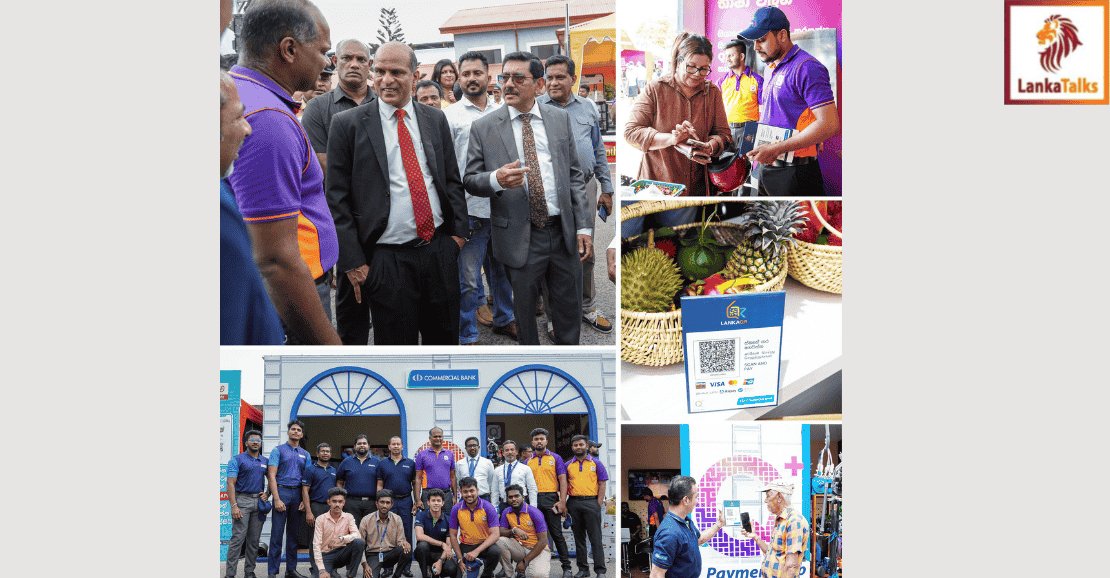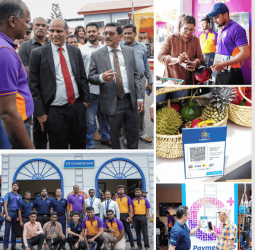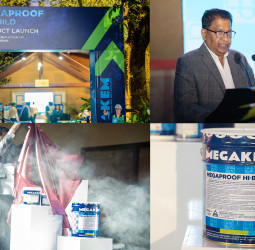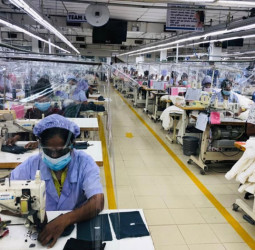For decades, Sri Lanka’s poultry industry has operated in the shadows of half-truths, clever labels, and fine print. Consumers were told their chicken was “safe” without ever being shown the evidence. Marketing campaigns reassured households that poultry was “healthy,” yet no one could answer the simplest of questions: Was this bird raised without antibiotics?
Today, New Anthoney’s Farms has decided enough is enough. With its HarithaHari range, the company has planted a flag that redefines what poultry means in Sri Lanka: clean, traceable, and entirely antibiotic-free from farm to fork. And unlike the vague promises that dominate the market, New Anthoney’s has the proof to back it.
This isn’t just a sustainability initiative. It’s a direct challenge to the industry.
Why “Antibiotic-Free” Actually Matters
The global conversation around food safety has long highlighted the dangers of overusing antibiotics in livestock. Routine antibiotics, often administered not just to treat disease but to accelerate growth or prevent overcrowding-related infections, have become the invisible fuel of an industry driven by volume. The result is a public health crisis: antimicrobial resistance (AMR).
The World Health Organization warns that by 2050, drug-resistant infections could claim more lives annually than cancer. At the heart of that crisis lies the silent overuse of antibiotics in food systems.
New Anthoney’s stands apart because it has chosen a harder path. Eliminating antibiotics is not just a marketing tagline—it’s a structural overhaul. It requires biosecure farms, rigorous veterinary oversight, higher investment in bird welfare, and a traceability system that can withstand scrutiny. It means putting people over profit margins in an industry that has, for too long, looked the other way.
A Promise That Demands Proof
The cornerstone of New Anthoney’s bold stance is transparency. Every batch of HarithaHari chicken is backed by third-party laboratory tests that confirm it is 100% free of antibiotics.
As CEO Neil Suraweera puts it, “Marketing claims don’t feed families—evidence does. If we’re confident enough to put our test reports in your hand, then every producer in Sri Lanka should be able to do the same. We’re not asking for special treatment. We’re asking for accountability.”
It’s a challenge no competitor has yet answered. Because while many talk about “clean chicken” and “safe protein,” few are willing to publish the paperwork.
Walking through a New Anthoney’s farm feels less like entering a factory and more like stepping into a carefully guarded ecosystem. Strict biosecurity protocols prevent disease before it begins. Stocking densities are carefully monitored to avoid overcrowding. Birds are raised on carefully formulated, antibiotic-free feed.
These aren’t hidden trade secrets. They’re the foundations of an Open Farm Protocol. “If we want to change the industry, then let’s do it in the open,” says Suraweera. “Audit us. Question us. Standards that live in locked filing cabinets don’t change an industry. Standards you can read, check, and trust—those do.”
This radical transparency isn’t just about ethics; it’s a commercial gamble. Implementing biosecurity and welfare-driven systems costs more. It takes longer. It eats into margins. But New Anthoney’s is betting that Sri Lankan consumers are ready to reward authenticity with loyalty.
A Call to the Industry: Label It or Leave It
New Anthoney’s isn’t shy about the bigger picture. The company is calling on regulators, consumer groups, and industry peers to establish a nationwide “No Antibiotics Ever” standard.
Such a standard would make it illegal to market poultry as “clean” or “antibiotic-free” without independent verification. Labels would have to mean something tangible: no routine antibiotics at any stage of the bird’s life, transparent testing, and penalties for non- compliance.
“If you want to claim antibiotic-free, prove it,” says Suraweera. “Sri Lanka deserves nothing less. Otherwise, we’re just lying to the public with pretty words on packaging.”
While the challenge is directed at the industry, the real power lies with Sri Lankan consumers. Every household that chooses HarithaHari is sending a message: we will no longer accept chicken raised on shortcuts. We will not be silent partners in fueling antimicrobial resistance.
By making HarithaHari accessible across retail outlets and positioning it as a mass-market clean protein option rather than a niche luxury, New Anthoney’s is democratizing food safety. This isn’t about a premium price point, it’s about setting a new baseline for what every chicken in Sri Lanka should be.
Facing the Inevitable Pushbacks
Of course, being first comes with risks. The poultry sector is vast, competitive, and highly price-sensitive. Industry pushback is inevitable. Rivals may dismiss the move as marketing. They may claim that “withdrawal periods” after antibiotic use make their chicken safe.
But withdrawal periods don’t erase the problem of AMR. Nor do they build trust with consumers who increasingly demand zero tolerance when it comes to antibiotic residues.
New Anthoney’s is unapologetic: “If being bold puts a target on our back, so be it. Better to take fire for leading than hide in the crowd of mediocrity.”
Closing Word: Redefining the Future of Food
This is more than a campaign. It’s an invitation to rethink Sri Lanka’s food future. An industry that embraces transparency, embraces accountability, and embraces responsibility to consumers will thrive. One that hides behind old practices and marketing gloss will not survive the scrutiny of a generation that demands better.
New Anthoney’s isn’t waiting for that future to arrive, it’s building it, one clean, antibiotic- free chicken at a time.
Sri Lanka’s poultry industry stands at a crossroads. On one side is the well-trodden path of shortcuts, silence, and slogans. On the other is a harder road—of higher standards, open audits, and genuine responsibility to public health. The Clean Protein Promise is a line in the sand. And it’s time for the entire industry to decide which side of that line it stands on.



 Natasha
Natasha




